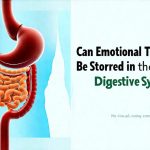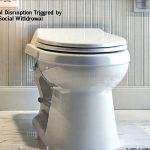Emotional withdrawal, a complex response to stress, trauma, or overwhelming emotional states, manifests in diverse ways. It’s more than simply becoming quiet or reclusive; it’s an active disengagement from emotional experiences, relationships, and even the self. This retreat can range from mild detachment, where individuals feel emotionally numb, to profound isolation marked by a significant loss of interest in previously enjoyed activities. Often, people experiencing emotional withdrawal aren’t consciously choosing to withdraw but are instead operating under a survival mechanism – a protective shield against further emotional pain or overwhelm. Understanding the physiological effects accompanying this psychological state is crucial for compassionate self-awareness and support, and surprisingly, these effects can extend to seemingly unrelated bodily functions like digestion and bowel habits. Recognizing how stool signs can indicate deeper issues is key.
The gut-brain connection, increasingly recognized by researchers, highlights the intimate relationship between our digestive system and our emotional wellbeing. This bidirectional communication pathway means that what happens in our minds profoundly affects our guts, and vice versa. When we experience prolonged stress or emotional distress – hallmarks of emotional withdrawal – it triggers a cascade of physiological changes impacting digestion. These include alterations in gut motility (the movement of food through the digestive tract), changes in gut microbiota (the community of microorganisms living in our intestines), and fluctuations in visceral sensitivity (how acutely we perceive sensations from internal organs). This intricate interplay explains why emotional states can significantly influence bowel movements, including stool consistency. It’s not merely a coincidence that “nervous” is often used colloquially to describe digestive upset; it reflects a deeply ingrained physiological reality. Learning more about how stool tests can help understand this connection is beneficial.
The Physiological Link Between Emotional Withdrawal and Digestion
Emotional withdrawal isn’t simply about suppressing feelings; it involves activation of the sympathetic nervous system, the body’s “fight or flight” response. This activation diverts blood flow away from non-essential functions like digestion, prioritizing immediate survival needs. Chronic activation leads to a state where the digestive system is consistently under-functioning or operating in an erratic manner. Furthermore, cortisol, the stress hormone released during emotional withdrawal, can directly impact gut motility and permeability. Increased cortisol levels often lead to slower gastric emptying – meaning food stays in the stomach longer – and reduced intestinal contractions which contribute to constipation and harder stools. Conversely, for some individuals, the initial stages of intense emotional distress or anxiety can increase gut motility leading to diarrhea before settling into a more constipated pattern as withdrawal deepens. The emotional impact of restrictive diets can also exacerbate these issues.
The vagus nerve plays a vital role in regulating digestive function and is significantly impacted by emotional state. Emotional withdrawal tends to dampen vagal tone – reducing its ability to effectively stimulate digestion and promote bowel regularity. A healthy vagus nerve promotes relaxation and efficient digestion, while a compromised one contributes to sluggishness and constipation. This decreased activity can also influence the balance of gut bacteria, creating an environment that favors less beneficial microbes and potentially exacerbating digestive issues. It’s important to note that this isn’t about blaming oneself for experiencing these physiological changes; it’s about understanding the natural consequences of a stressed nervous system attempting to cope with overwhelming emotional burdens. Seeking spiritual support can be helpful during this process.
The influence extends beyond simple mechanics. Emotional withdrawal often leads to lifestyle modifications, further impacting bowel habits. Individuals may experience reduced appetite, altered eating patterns (often leaning towards comfort foods or skipping meals altogether), and decreased physical activity. All these factors contribute to digestive sluggishness and potentially harder stools. Recognizing this interconnectedness is the first step toward developing a more holistic approach to self-care during periods of emotional withdrawal.
Understanding Stool Hardness as an Indicator
Stool hardness, assessed using scales like the Bristol Stool Chart, provides valuable insights into digestive health. While occasional variations in stool consistency are normal, persistent hardness can signal underlying issues beyond dietary factors. In the context of emotional withdrawal, it’s rarely about a lack of fiber; rather, it’s often indicative of slowed gut motility and reduced hydration levels within the colon. The colon absorbs water from waste material, and if the passage is slow due to decreased peristalsis (wave-like contractions propelling food through the intestines), more water is absorbed, resulting in harder, drier stools.
The correlation between emotional state and stool hardness isn’t always straightforward. Some individuals may experience constipation as a direct result of emotional withdrawal, while others might initially have diarrhea followed by constipation as their bodies attempt to cope with stress. The key lies in observing the pattern – how consistently hard or altered stools are occurring, and whether there’s a noticeable connection between these changes and periods of intense emotional withdrawal or distress. Ignoring persistent changes can lead to discomfort, bloating, and even more serious digestive complications down the line. Addressing the emotional impact of a difficult diagnosis is often crucial for overall wellbeing.
It’s vital not to catastrophize stool hardness but rather to view it as feedback from your body. It’s a signal that something is off-kilter and warrants attention – not necessarily in the form of immediate medication, but through self-reflection, gentle lifestyle adjustments, and potentially seeking professional support if needed. Acknowledging this connection between emotional wellbeing and bowel function can empower individuals to proactively care for themselves during challenging times.
Hydration and Dietary Considerations During Withdrawal
Adequate hydration is paramount when experiencing emotional withdrawal and associated digestive changes. Stress hormones like cortisol promote water excretion by the kidneys, leading to dehydration which exacerbates constipation. Aiming for consistent fluid intake throughout the day – primarily water, herbal teas, or diluted electrolyte solutions – can help maintain stool softness and overall wellbeing. However, simply drinking more water isn’t always enough; it’s crucial to consider how you’re hydrating. Sipping small amounts of water frequently is often more effective than gulping down large quantities at once.
Dietary adjustments should focus on gentle support rather than drastic changes. While fiber is important, overwhelming a sluggish digestive system with excessive fiber can actually worsen constipation. Instead, prioritize easily digestible foods and consider incorporating sources of soluble fiber – found in oats, applesauce, bananas, and beans – which help soften stools. Avoiding processed foods, sugary drinks, and excessive caffeine or alcohol can also be beneficial, as these substances can further disrupt gut function and exacerbate dehydration. Consider foods to choose for support during challenging times.
- Focus on warm, nourishing foods that are easy to digest.
- Incorporate probiotic-rich foods like yogurt (if tolerated) or fermented vegetables to support a healthy gut microbiome.
- Consider mindful eating practices – slowing down, chewing thoroughly, and paying attention to your body’s fullness cues.
- Avoid large meals which can overwhelm the digestive system.
Gentle Movement and Nervous System Regulation
Physical activity plays a crucial role in promoting digestive health and regulating the nervous system. Even gentle movement – such as walking, yoga, or stretching – can stimulate gut motility and reduce stress levels. Exercise releases endorphins, natural mood boosters that help counteract the negative effects of emotional withdrawal. However, intense exercise may not be beneficial during periods of profound emotional distress; it’s important to listen to your body and choose activities that feel supportive rather than draining. Mental health support is vital for navigating these challenges.
Nervous system regulation techniques can directly address the underlying physiological imbalances contributing to stool hardness. Practices like deep breathing exercises, meditation, mindfulness, or progressive muscle relaxation help shift the nervous system from a sympathetic “fight or flight” state to a parasympathetic “rest and digest” state. This allows for improved digestive function, reduced stress levels, and enhanced emotional wellbeing.
- Diaphragmatic breathing (belly breathing) can calm the nervous system and promote relaxation.
- Mindfulness meditation helps cultivate present moment awareness and reduce rumination on stressful thoughts.
- Spending time in nature has been shown to lower cortisol levels and improve mood.
- Establishing a consistent sleep schedule is essential for regulating hormones and supporting overall health.
Ultimately, addressing stool hardness during emotional withdrawal requires a holistic approach that acknowledges the interconnectedness of mind, body, and emotions. It’s about self-compassion, gentle support, and recognizing that these physiological changes are often a natural response to challenging circumstances. Seeking professional guidance from a healthcare provider or therapist can provide personalized strategies and ensure appropriate care.


















